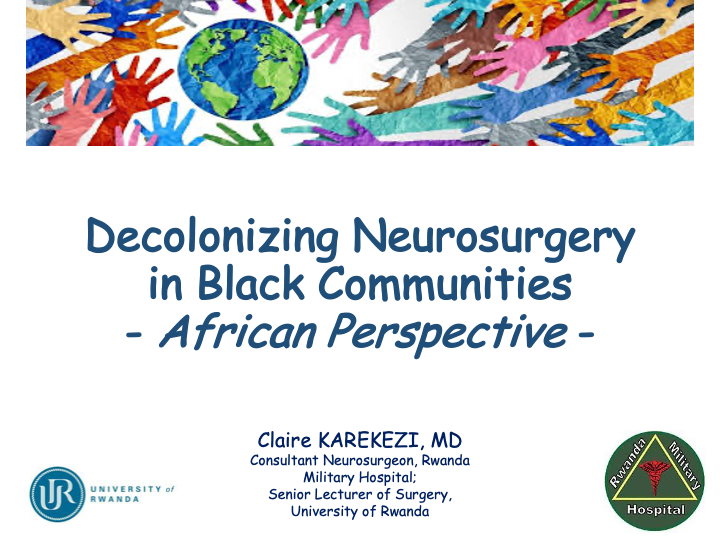The History of Neurosurgical Inequities in Black and African Communities
By Office of the President | Mar 6, 2023

As part of Black History Month, Downstate held a unique discussion, “Decolonizing Neurosurgery in Black Communities: A Critical Conversation about Race, Ethnicity, and Community Empowerment in Neurosurgical Inequities,” featuring Ernest Barthélemy, M.D., MPH, MA, Neurosurgery Division chief, and guest speaker Claire Karekezi, M.D., the only female neurosurgeon in Rwanda. Moro Salifu, M.D., chair of Medicine and BHDC director, moderated the discussion, which focused on the roles of racial and gender equity in remedying the world’s unmet need for neurosurgical care.
Dr. Karekezi attended medical school in Rwanda—but with no neurosurgical training available there, she pursued specialty training in Morocco, the United States, and Canada. Today, she is the only female of six neurosurgeons in Rwanda; she practices at Kigali, Rwanda Military Hospital.
Born in Brooklyn to immigrant parents from Grand-Goave, Haiti, Dr. Barthélemy’s medical training was primarily centered in New York. At the same time, he did his public health training, including a stint as a Paul Farmer Global Surgery Fellow at Harvard. Dr. Barthélemy sees neurosurgery as a pathway toward social transformation in Haiti, which has only four practicing neurosurgeons.
Both Rwanda and Haiti share commonalities. Both are severely under-resourced and have been wracked by civil strife, high poverty levels, hunger, and violence, though incidents of violence have rapidly decreased in Rwanda since its 1994 genocide. Haiti is still recovering from the devastation of the 2010 earthquake and more recent sociopolitical turmoil. In both countries, the government’s medical priority is primary care; neurosurgery is a luxury reserved for those who can afford it.
Both countries were victims of extractive colonialism. And in both countries, the current economic and government structures were shaped by former European colonial powers—Rwanda by Germany and Belgium and Haiti by France. Both countries continue to suffer the consequences of their colonial legacy.
America has also suffered colonialized thinking. As a result of the Flexner Report of 1910, all but two of the medical schools training Black physicians were closed—in no small part due to Abraham Flexner’s racially biased perception of Blacks. The impact of the Flexner Report continues today as both a contributor and cause of the ongoing lack of minority physicians. It is evident in Brooklyn, and other communities of color, where stigma and social determinants of health are significant barriers to care. The three top causes of death—cancer, unintentional injury, and stroke—are critical nexuses to neurosurgery.
As part of the movement to decolonize global health practice, Dr. Barthélemy believes there should be inclusive conversations that empower historically minoritized populations, centering the determinants of socioeconomic disparities and stigma in diversity and equity initiatives. These conversations must occur within local and global health equity and with a commitment to decolonial humanism. Both Drs. Barthélemy and Karekezi believe that colonial mentality must be removed and solutions should come from within.
The discussion was sponsored jointly by the Office of the President, Division of Neurosurgery, Office of Institutional Equity, and the Brooklyn Health Disparities Center.
To view the discussion, click here. You can also read the recent paper by Dr. Barthélemy and Dr. Karekezi, published in PLOS Global Health on February 6.